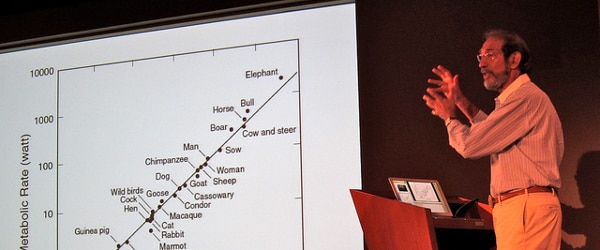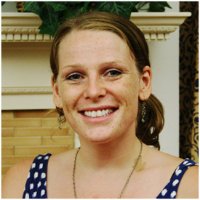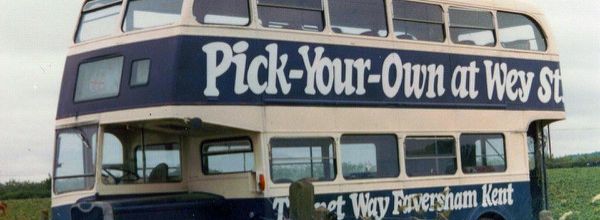What happens when you finally get the life sciences degree you worked so long for and then realize you really don’t want to spend the rest of your life in the lab?
Or you get tired of working long hours with few results and low pay, or you succumb to any of the other reasons that might put you off being a scientist.
You may well decide to hang up your lab coat and move into something else… and there are a lot of great options for people with a science background and postgraduate degrees that lead to rewarding and lucrative careers.
15 Alternative Careers for Scientists
In order to help you decide on an alternative career choice, we’ve compiled a list of 15 alternative careers for scientists that might be worth considering if you ever decide it’s time to leave the lab. This is by no means an exhaustive list, but it might give you a few ideas.
1. Technical Services
Technical Services support involves interacting with scientists over the phone to troubleshoot problems with products or even to provide a scientific consultation on general experimental strategy and design. As this isn’t a face-to-face role, it makes for an easy transition for an introverted scientist to a more outgoing profession.
Many opportunities exist to grow your career within a company if you want to move up the corporate ladder. Just be prepared to answer the phone 30–40 times a day and, once in a while, be berated by a customer.
2. Product Manager/Marketing
Product managers are responsible for a product from launch to discontinuation. The job has many responsibilities so fits best with people who are highly organized, and can multi-task, and lead teams. The main goal of a product manager is to make money for the company.
You accomplish that goal by numerous marketing activities (advertising, attending scientific conferences, promotional giveaways, etc.), by building new products that people want, and by making sure that every product is in perfect working order when received by the customer.
The salary is generous but be prepared to work 12-hour days and be under constant pressure to increase revenues.
3. Biotech Sales Representative
Who is that person who comes to your door and tries to sell you everything from tips and tubes to kits and instruments for PCR? It’s your friendly neighborhood sales representative. Most, if not all, salespeople in biotech have worked in the lab and some even have PhDs, making it one of the most common alternative careers for scientists.
If you take a minute to talk to your biotech sales rep, you will see that their true purpose is to make sure you have everything you need (from their company!) to be a success. But your success is always paramount to their sale.
Of course, there are those who are under intense pressure to make a sale to the point where they push too hard, and some are too green in their career to understand that they are trying to sell you something you don’t use.
But, overall, they are a bright and hard-working group of people who want to excel at their job by helping you excel in the lab. The income you can make in sales can be very high but so is the pressure to meet the revenue targets assigned to you.
4. Field Application Scientist (FAS)
The FAS role is often a perfect position for academic bench scientists looking to move into industry. The FAS is called in when a customer is interested in purchasing a new product or is having trouble getting an existing one to work.
Working in the customer’s lab, the FAS will demonstrate how well a product works, troubleshoot problems with a product, or teach a lab how to use a complex instrument. The FAS may also install instruments or robotics and maintain their proper function.
The FAS travels frequently because they are assigned large territories and will sometimes need to stay at an account for up to a week. Part of their role is to build solid friendships with the labs they support while helping their company win (or keep) new accounts.
5. Business Development
Business development is a very exciting role that involves growing and shaping the scope of a company’s business approach. This can mean making technical collaborations with other companies, bringing in contract work, or licensing in or out technologies through to deciding on mergers and acquisitions.
Typically, this requires an MBA degree in addition to a science background, but working your way up through the company ranks is another route. Business development requires a strong mix of technical knowledge and marketing experience.
The person should have a good feel for the changes going on in the market and what the next hot technology or area of research might be. Your advice can have a big effect on the decisions a company makes, so expect high stress and pressure.
6. Manufacturing Quality Assurance (QA)/Quality Control (QC)
The process of taking a product from the research phase to market requires the ability to produce it on a large scale. You’ve successfully formulated the buffers and the procedure for a new kit in the lab. Now try building 500 of them and make sure they work exactly as well as the single one from the lab.
Or try scaling up protein expression and purification to make liters of enzyme and keep it soluble. Or making liters of competent cells, bearing in mind that if the efficiency falls below a set number you have to start all over again. You get the picture!
Manufacturing requires precision, perfection, and focus. Manufacturing scientists do everything from production to the QC. Depending on what the product is used for, the QC can involve complex techniques such as real-time PCR, cloning, or enzyme activity assays.
Manufacturing is not a glamorous job but it is critical to the success of a company because if manufacturing can’t keep up, it can cause huge losses in revenue and customers.
7. Technology Transfer
Technology transfer involves finding ways to commercialize technologies developed in the public sector (universities or government agencies). It is like the academic equivalent of business development and requires many of the same skills.
Tech transfer jobs can be found in the public institutions themselves, in companies that routinely commercialize technologies that originate in the public sector, or in non-profit technology transfer organizations.
8. Science Copywriting
Copywriters produce the copy (the written material) for marketing products or ideas. This is a great position for people who like to communicate science through writing. If you work for a biotech company as a copywriter, you would be helping product managers to communicate their message to the market about a product via a print ad, email blast, banner ad, webpage, or flyer.
Copywriters and product managers work together to perfect the message before the copy goes to design for layout and imagery. This position really accentuates your creative side, but be prepared to deal with stressed-out product managers.
9. Medical/Technical Writing
Another type of science writing is technical writing, which includes writing handbooks/product manuals and application notes. This requires less creativity and more of the ability to communicate exactly how something should be done. If a protocol is unclear, it is the problem of the technical writer (and the product manager).
More info on working in medical and technical writing is available here.
10. Science Journalism
Yet another type of science writing is science journalism. Science journalists produce content for newspapers, magazines, and websites (just like I’m doing now). You can work either freelance or as a staff writer, employed directly by the publication. Either way, the competition is tough. The best way in is simply to start writing and trying to get things published.
11. Scientific Illustration
If drawing, rather than writing, is your forte, then scientific illustration may be an option. Although opportunities in this field are limited, they do exist. Breaking into this field is like scientific journalism – you just have to start drawing and try to get your work noticed. Here is a great article on carving out a career in scientific illustration.
12. Recruitment/Head-hunter
Recruiters help companies to find suitable candidates for job openings and can work for independent recruitment consultancies or for a company’s in-house human resources department. This type of job requires an outgoing personality and the ability to develop a great network for candidate searches.
Having a science background will help you know when a candidate’s skills are a good match for an employer, but the competition for good candidates is high and part of the job is being a nudge. Typical recruiters call or email at least 10–15 times before they accept a “no” answer!
13. Teaching
Some people are born teachers and if this is you, high school teaching can be a great option. Aside from the joy of teaching (assuming it is a joy for you), the holidays are great and the pay can be pretty good too. The downside is working with teenage kids, which is an unenviable task if you ask me! Here is a good article on moving from the lab to the classroom.
14. Patent Examiner
Patent examiners are employed by the government to review patent applications and decide whether they should be granted. Typically this involves searching the literature and patent databases to determine if the application is innovative and meets the requirements for a patent to be granted. Get more information on the role of a patent examiner here.
15. Patent Lawyer/Attorney
Patent lawyers operate at the other end of the patent application process, working for clients who wish to file and maintain patents or who need guidance with any aspect of patent law. This is a very well-paid career, but is also high pressure and requires both scientific and law training.
The level of training required to become a patent lawyer varies from country to country. More details about the qualifications required to become a patent lawyer can be found here.
Do you have any other alternative careers for scientists? Beverage scientist, anyone? Did this article help you find your next career move? Leave us a comment below!
Originally published January 3, 2008. Reviewed and updated on January 14, 2021.






